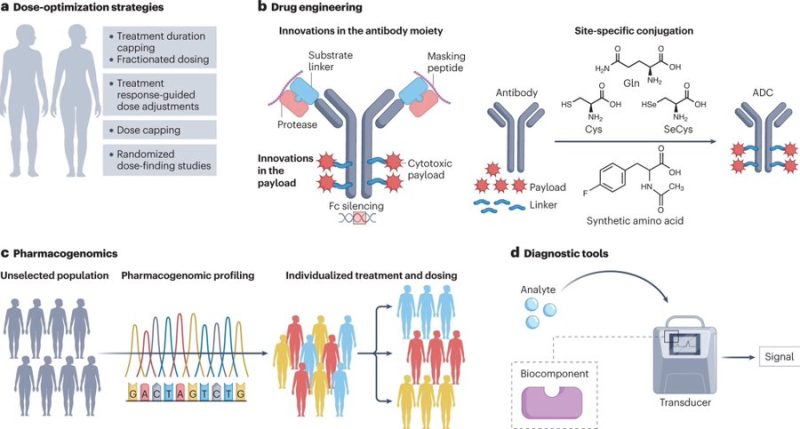Explore pharmacogenomic determinants of toxicity. Sacituzumab govitecan is more toxic among patients with certain UGT1A1 polymorphisms (5-10% of all pts). Other genes may be relevant for different ADCs, allowing to adapt the dose upon the genomic background of the patient.

Photo of Paolo Tarantino taken from Twitter
Dec 15, 2023, 05:57
Paolo Tarantino: In our recent Nature Review we suggested some strategies to mitigate toxicity of novel ADC
Paolo Tarantino, clinical research fellow at the Dana-Farber Cancer Institute, shared a post on X/Twitter:
“Unfortunately true: novel ADCs are much more potent and effective than 1st gen ones, yet the higher potency comes at the cost of more chemo-related toxicities. In our recent Nature Review we suggested some strategies to mitigate toxicity of novel ADC
Optimize the dose and schedule. Randomized studies with T-DXd are showing that lowering the dose can reduce toxicity and retain efficacy in certain indications. Response-adapted strategies are being studied to adapt the dose based on the response to the regimen.
Develop smart monitoring devices. Many are in development to achieve a fast, easy and comfortable home monitoring of vital signs or other parameters that may allow for an early diagnosis (and better treatment) of ADC-related toxicities.
Develop a new generation of safer ADCs. This will likely need molecular adaptations in each ADC component: making the antibody more specific, optimizing linker stability and the tumor-specificity of the payload. Many innovative ADCs are being tested, the future is bright.”

For the article click here
Source: Paolo Tarantino/X
-
Challenging the Status Quo in Colorectal Cancer 2024
December 6-8, 2024
-
ESMO 2024 Congress
September 13-17, 2024
-
ASCO Annual Meeting
May 30 - June 4, 2024
-
Yvonne Award 2024
May 31, 2024
-
OncoThon 2024, Online
Feb. 15, 2024
-
Global Summit on War & Cancer 2023, Online
Dec. 14-16, 2023
Sep 9, 2025, 02:16
Sep 9, 2025, 02:03
Sep 9, 2025, 01:48
Sep 9, 2025, 01:43
Sep 9, 2025, 00:59
Sep 9, 2025, 00:46
Sep 8, 2025, 17:37
Sep 8, 2025, 16:57
